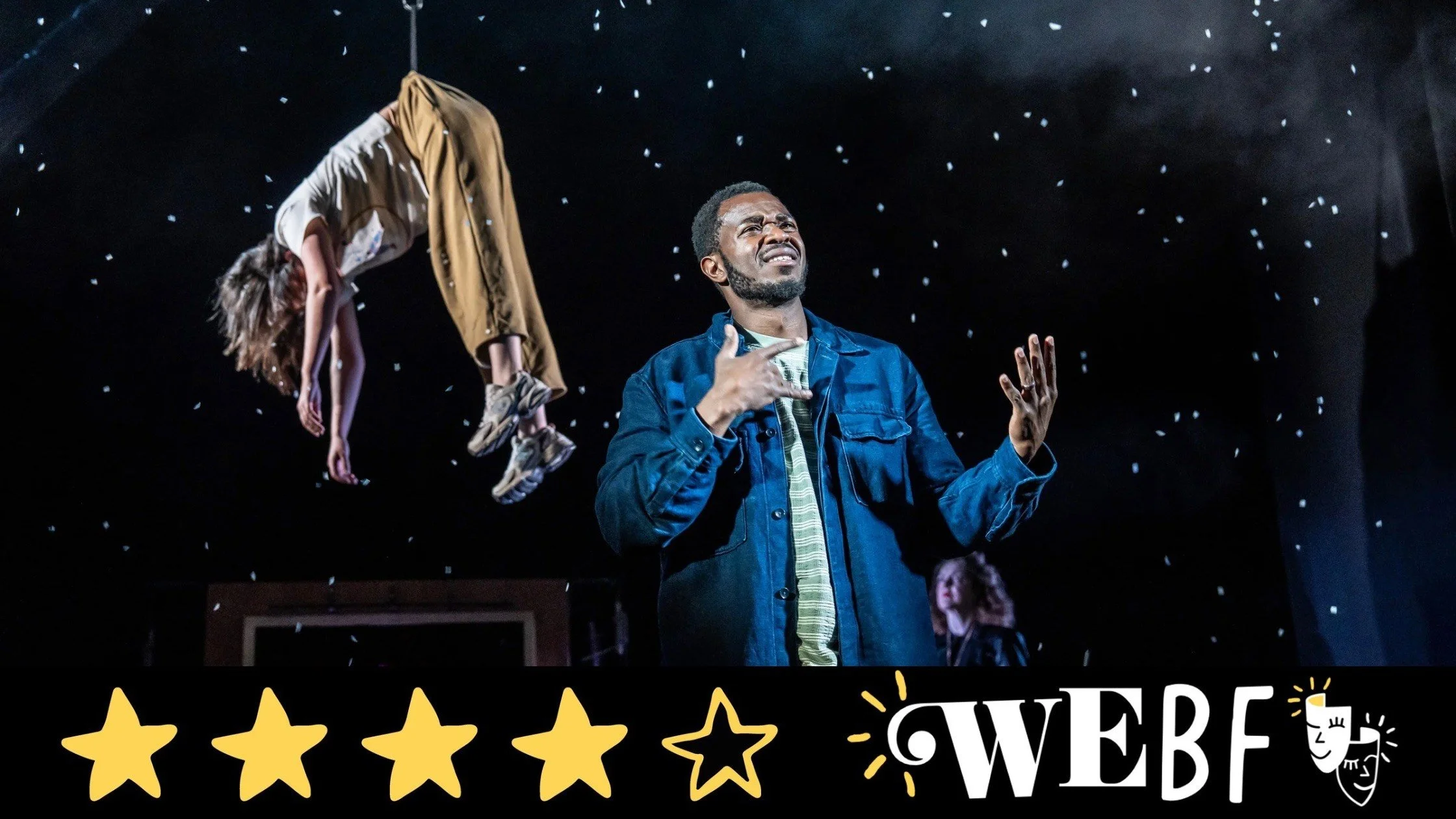Review: DEAF REPUBLIC, Royal Court Theatre
Photo credit: Johan Persson
Deaf Republic by Dead Centre & Zoë McWhinney makes its Royal Court debut with unapologetic impact. Co-directed by Bush Moukarzel and Ben Kidd, and co-written by both and McWhinney, it’s part devastating, part unsettlingly beautiful. Adapted from Ilya Kaminsky’s modern epic poem of the same name, this isn’t simply a story of war; it’s a meditation on resistance, complicity, and what happens when silence becomes both rebellion and survival.
The plot is set in the fictional town of Vasenka where a deaf boy is shot dead by occupying soldiers for disobeying an order he could not hear. The next day, the entire town wakes up deaf, or perhaps chooses to be. The town unite in collective defiance and quiet despair in a world where language is weaponised, withheld and reclaimed. The play explores deafness as something radical and disarming. It becomes a weapon not of violence but of withdrawal, a refusal to play the oppressor’s game. The strongest act of rebellion here is to turn away, to take back control of communication itself. But it can’t quite quell violence. No one is innocent in war, not fully. The show never lets us forget that resistance is complicated, and survival is often morally grey.
The production itself is as ambitious as its themes. Spoken English, BSL, creative captioning, live cinema, puppetry, aerial work, it sounds like chaos but serves the story it strives to tell. Our eyes, ears, even and proprioceptors, are constantly redirected, trained to absorb narrative in new ways. One moment asks us to read, the next to listen, the next to simply watch in stillness. Technology, movement, sound and silence, they converse with one another, provoking each next moment, building a potent world.
Using poetry in performance can be risky. The mediums ask different things of us: words on the page invite quiet reflection; when spoken, they need presence and carefully shaped dynamics, so they don’t drift into the merely lyrical. Here, it is beautifully acknowledged that BSL is, by default, inherently more expressive and can say more than a word ever could. Some of the spoken text doesn’t always land, but perhaps that’s the point. The imbalance is deliberate. What’s unsaid carries more meaning than what is spoken.
Performances are uniformly strong. The ensemble: Romel Belcher as the BSL-speaking narrator and tragic figure Alfonso, Caoimhe Coburn Gray as Worder and the equally impactful Sonya, Derbhle Crotty, Kate Finegan, Eoin Gleeson, Lisa Kelly, and Dylan Tonge, move seamlessly between the multiple forms the production demands. Each bring clarity to a story deliberately designed to disorient and provoke. A special mention goes to the soldier played by Tonge who is played suitably unlikeable, yet with just enough perspective to reveal, not absolve, the intoxicating power people can feel over difference and status.
Technology, set, and sound are executed with precision and emotional weight. Jeremy Herbert’s set, Mae Leahy’s costumes, and Azusa Ono’s lighting sketch a world of shifting tension and fragile hope. Grant Gee’s video design, Kevin Gleeson’s score and sound design, and Fred DeFaye’s associate sound work weave these elements into a living, breathing tapestry of story and resistance. Ciaran O'Grady’s fight direction also makes an impact.
If your experience is like ours, you’ll leave after one hour and fifty minutes unable to speak right away, a telling silence. You feel complicit, implicated by Kaminsky’s own words: “We lived happily during the war.” Which war? It could be so many, now. The piece asks what it means to be deaf to what’s around us, when that deafness is a failing, and when it might be a kind of solace, even freedom.
Deaf Republic does what the best theatre should: it sends you back into the world questioning your place in it and invites conversation after the lights go up. It teeters now and then on the edge of exposition and could perhaps trust itself a little more, trim some time off, but what remains is a work of undeniable power: bold, politically resonant, and deeply human.
**** Four stars
Reviewed by: Stephanie Osztreicher
Deaf Republic plays at London’s Royal Court until 13 September, with further info here.


